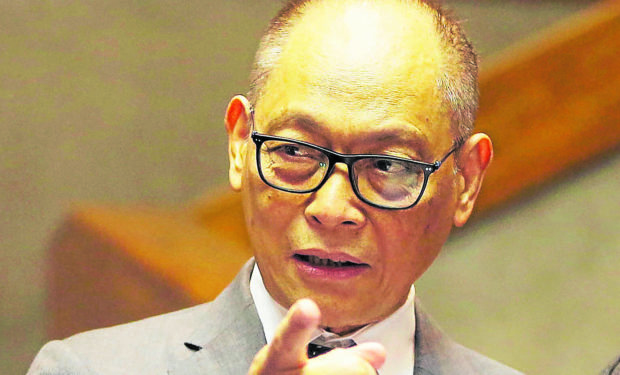MANILA, Philippines—Enacting laws against money laundering is insufficient to get the Philippines out of the so-called gray list of nations with deficient legal framework to combat illicit movement of funds, according to the head of the Philippine central bank.
Bangko Sentral ng Pilipinas (BSP) Governor Benjamin Diokno, also ex-officio chair of the Anti-Money Laundering Council (AMLC), showing to the Financial Action Task Force (FATF) that Philippine laws work was also key to getting out of the unenviable list.
“Adopting compliant laws and regulations is not sufficient,” he said at an online press briefing on Thursday (July 1). “We have to demonstrate effectiveness.”
Diokno said nothing less than a government-wide approach was needed to enforce the laws and remove the Philippines from the gray list of the FATF, the international watchdog against dirty money.
“It must be emphasized that accomplishing the action items should be the concern of the entire country,” Diokno said. “A whole-of-government approach is imperative as evident in the Philippines’ national anti-money laundering and counter-terrorism financing strategy for 2018 to 2022,” he said.
Created by Executive Order No. 68, the National Anti-Money Laundering/Combating the Financing of Terrorism Coordinating Committee (NACC) is the main body pushing for the implementation of the program.
The NACC subcommittees, which are composed of various government and law enforcement agencies, are the primary implementers of the action plans, which are being updated to integrate recommendations and requirements by the International Co-operation Review Group.
NACC subcommittees are composed of the National Bureau of Investigation, the Philippine National Police, the Philippine Drug Enforcement Agency, the Philippine Amusement and Gaming Corp. and others.
“The NACC is on top of the situation,” Diokno said. “Even before the FATF statement on the Philippines’ grey listing, the NACC has met and all agencies involved have committed to accomplishing the 18 action items within the timelines given.”
The 18 action items refer to various immediate desired outcomes or key goals of effective anti-money laundering and counter terror financing frameworks which a country should achieve to assess if it was effectively implementing laws and regulations.
The Philippines’ will report its progress to the FATF thrice a year—every January, May and September—and submit its first report in September 2021.
TSB


